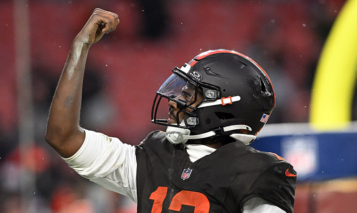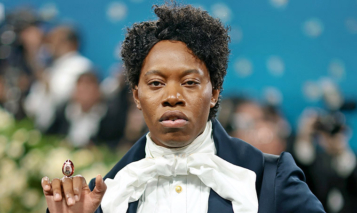
USA Powerlifting (USAPL) has banned all male-to-female (MTF) transgender individuals from competing against biological women. Pictured above is female Australian Weightlifter and CrossFit athlete Pip Malone.
Minneapolis powerlifter JayCee Cooper, a male-to-female transgender who recently won a women’s powerlifting state championship, is challenging USAPL’s ban.
The USAPL wrote in an email to Cooper: “Male-to-female transgenders are not allowed to compete as females in our static strength sports as it is a direct competitive advantage.”
The USAPL’s “transgender participation policy” notes that, while “USA Powerlifting is an inclusive organization for all athletes… USA Powerlifting is not a fit for every athlete and for every medical condition or situation.”
Cooper is considering challenging the USAPL’s decision in court.
Renée Richards, born Richard Raskind, was the first male-to-female transsexual to successfully sue for the right to compete in a major women’s tennis tournament in the 1970s.
Richards underwent sex reassignment surgery at age 41, and entered the women’s professional tennis circuit in 1977 at age 43. Richards lost to Virginia Wade in the first round of the US Open.
Richards, who is now 84, believes genetic males have a distinct physiological advantage over genetic females.
“I know if I’d had surgery at the age of 22, and then at 24 went on the tour, no genetic woman in the world would have been able to come close to me. And so I’ve reconsidered my opinion.”
According to the USAPL’s transgender policy, male-to-female athletes have a “direct competitive advantage” over biological women due to their “muscle mass, bone density, bone structure, and connective tissue” acquired through exposure to testosterone during puberty.
Outsports.com, which celebrates homosexuality in sports, compared male-to-female trans individuals to Black women, saying studies have shown Black females have a higher bone density than white females.
“The bone density of black women is, on average, significantly higher than that of white women. In fact, some studies have shown the bone strength of black women to be higher than that of white men,” writes Outsports. “Yet we don’t see any great rush to divide lifting categories by race, proving this bone-density argument to be nothing but a canard designed to specifically target trans athletes.”
Cooper, who won a women’s state championship in the smaller U.S. Powerlifting Association (USPA) in January, says the USAPL’s decision is unfair to powerlifter’s who were born male.
“I won their Minnesota State Championship and it was amazing, but it still felt off knowing that I was denied eligibility for USA Powerlifting,” Cooper told Outsports.com.
In an Instagram post, Cooper writes, “I am hopeful that the USAPL membership will stand up for trans inclusion and be on the right side of history. Trans athletes should not be feared but celebrated fiercely.”
Read Cooper’s full IG post below.
Photo by Ryan Pierse/Getty Images





